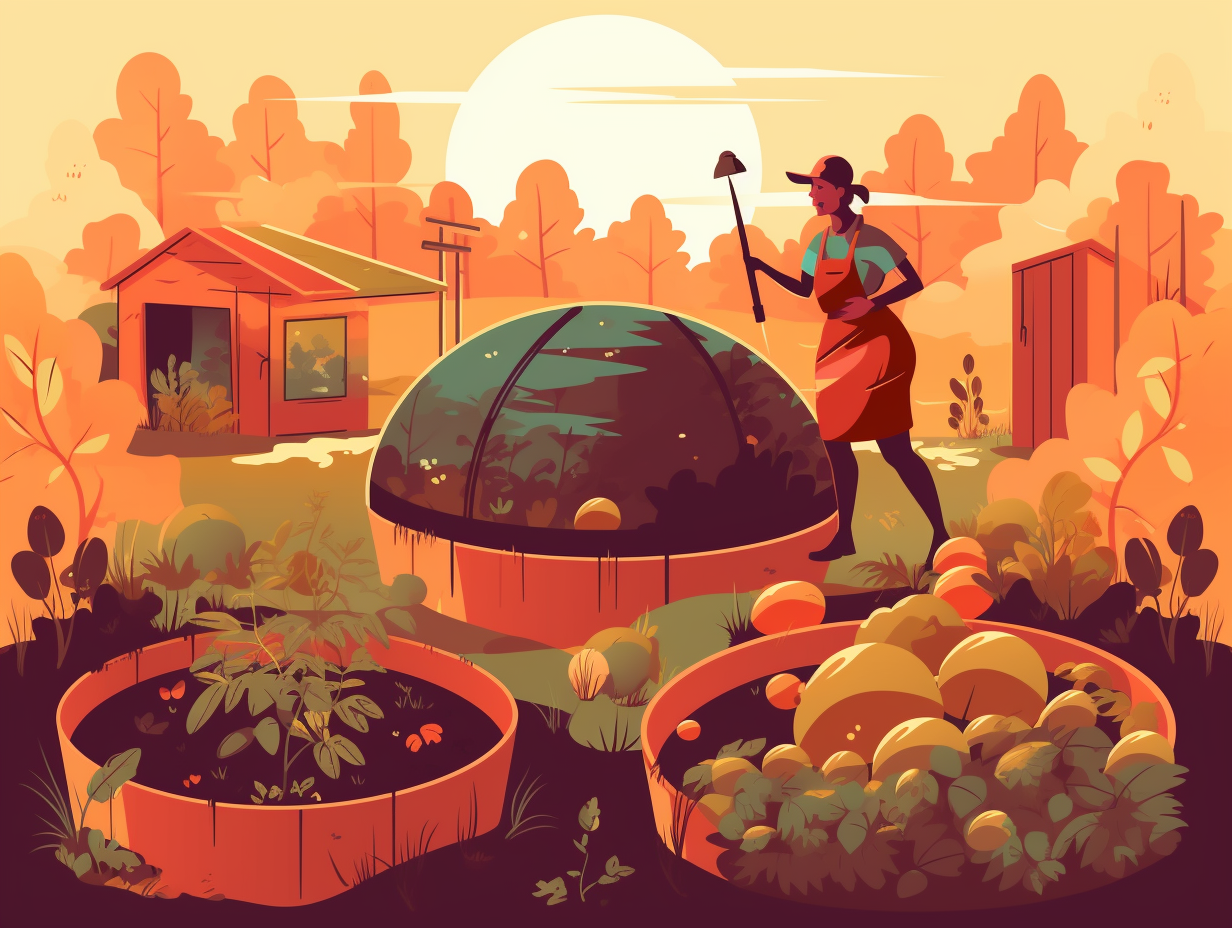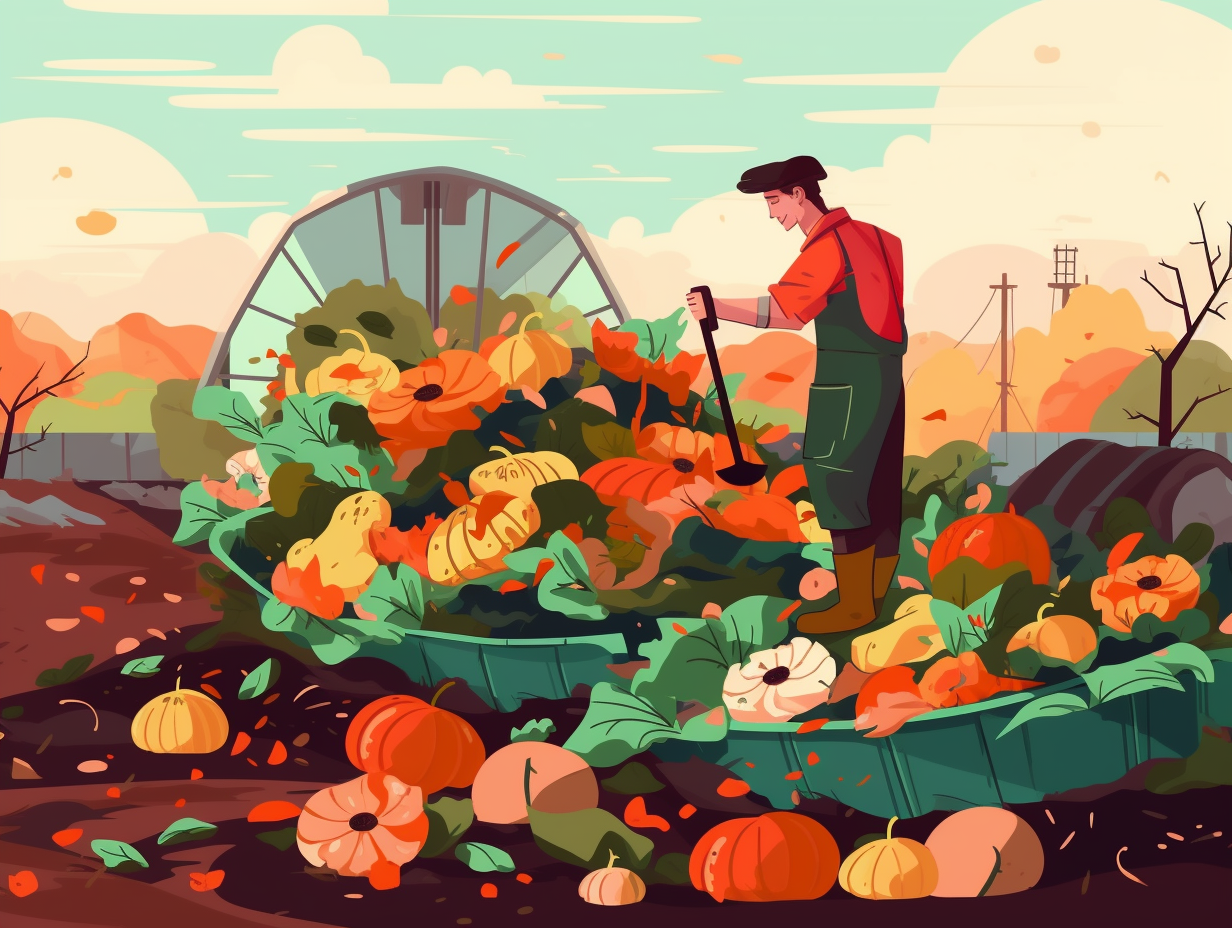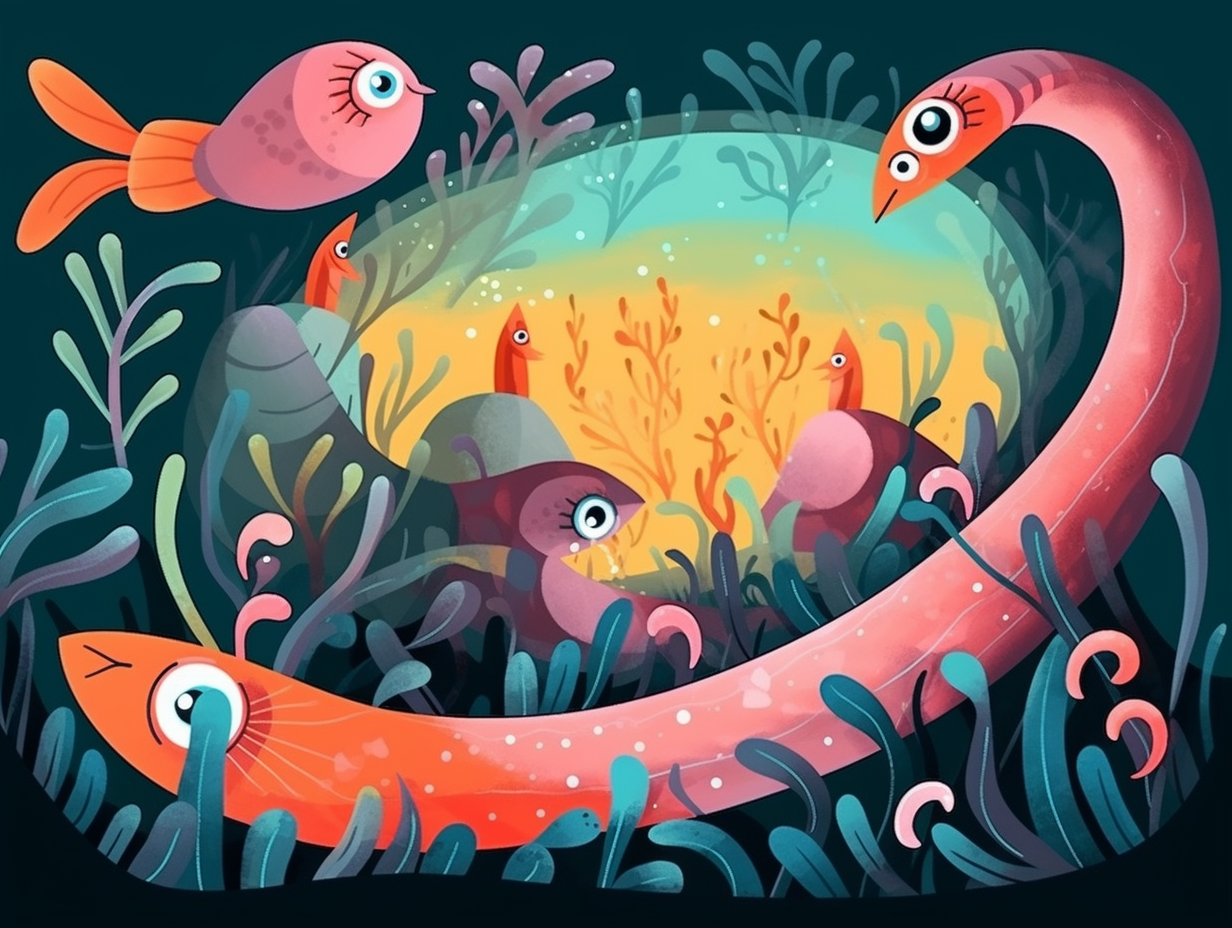Discover the Wonders of Waste: Top 12 Fun Facts About Composting You Need to Know!

1. Feeling Gassy? Try Composting!
Feeling gassy? Give composting a shot: By decomposing organic materials in a controlled environment instead of landfills, composting reduces methane production—a potent greenhouse gas—while its use as a soil amendment helps plants absorb and store carbon dioxide, resulting in a greener (and less gassy) planet.
Source => extension.missouri.edu
2. Microorganism Gossip in Compost
Here's some "hot" gossip from the microorganism world: In the process of composting, it's not just one billion bacteria in a teaspoon that do all the work; it's a fantastic ensemble of mesophilic bacteria, thermophilic bacteria, fungi, and actinomycetes! They each play their part in breaking down organic waste, from chomping on simple sugars to tackling the hardest materials, ensuring the compost party keeps rocking and rolling.
Source => compostmagazine.com

Did you know recycling a ton of paper can save 19 trees, 1,500 liters of oil, and 29,000 liters of water? Plus, it helps reduce methane emissions! Discover the limits of paper recycling and how to be more mindful in the fight against paper waste.
=> Fun Facts about Recycling
3. Coffee Grounds Energize Compost
Wake up and smell the compost: used coffee grounds can not only give your plants a caffeine boost, but they also enhance soil structure, ramp up fertility, and lure in the ever-helpful earthworms for a decomposer party! So when you're done sipping your morning brew, give those grounds a second career as a compost superstar: nitrogen-rich and eco-friendly, they'll energize your garden and tickle the fancy of even the most discerning earthworm.
Source => masterclass.com
4. Diaper Composting Misconceptions
Well, diaper me surprised! Just when you thought you could bury your eco-guilt along with those biodegradable diapers: turns out only a handful of single-use diaper brands like DYPER, Nest Diapers, and Bambo Nature can actually be composted in commercial or industrial facilities. So before you go bottom-up over biodegradable diaper claims, make sure to read the fine print and avoid soiling your compost's reputation!
Source => greenmatters.com

5. Compost - Garden Superhero & Avengers
Composting: the garden superhero with more sidekicks than the Avengers! Dispensing pest repellant with a flick of its decomposing wrist, and punching out pesky diseases with its nutritious knuckles, compost even manages to keep the weedy villains at bay: All thanks to its nutrient-rich powers that balance soil health, enhance plant resistance, and generate high temperatures which triple-threat those disease-causing microbes, weed seeds, and bothersome insects.
Source => compostingcouncil.org
6. Earthworms - Heavy Metal Rockers
Worms may be Mother Nature's unheralded alchemists, but who knew they moonlight as heavy metal rockers, detoxing our soils like it's their day job: Earthworms can consume compost containing heavy metals and other toxins, breaking them down into harmless compounds, providing a sustainable way to improve soil quality, reduce pollution, and produce a nutrient-rich, all-natural, earth-shattering fertilizer.
Source => planetnatural.com
7. Massachusetts Compost Connection
Here's a law that really knows how to compost-carner: Massachusetts passed a nifty rule in 2014 that forces any business or institution tossing out one ton or more of food weekly to get their grub going green: The law requires diverting that food waste into composting, which has not only reduced landfill load and lowered methane emissions, but also stimulated economic growth through job creation and a boost to the Gross State Product. That said, who knew there'd be some "nutrient pollution" drama? So let's keep standards high and oversight on point to keep our water quality shipshape and conservation efforts strong!
Source => epa.gov
8. Trash to Treasure for Compost Lovers
Who says that trash can't be treasure? Composters have been digging for gold and gaining a lot more green in return: In 2019, the food retail, food service, and residential sectors composted 3.3 million tons of wasted food, reducing methane emissions, promoting soil health and even contributing to cost savings, water retention, reforestation, and habitat revitalization efforts.
Source => epa.gov
9. Fruitful Worm Love Life
You might say that worms have quite the fruitful love life, outperforming popular dating apps in success rates: Mature breeder worms can produce an average of four to five egg capsules per month, each containing around six worm eggs which take about 21-30 days to hatch, potentially housing up to twenty mini wigglers. Don't worry, though; you can play matchmaker and delay the hatching by refrigerating the capsules for up to 18 months!
Source => wormfarmingsecrets.com

10. Steamy Composting Couple
They say the couple that composts together, stays together: maintain a passionate, steamy affair with your compost pile by cultivating the perfect balance of flirty nitrogen-rich "greens" and sophisticated carbon-rich "browns," engaging in a tantalizing 3:1 ratio that is hot enough to heat things up while allowing the breeze of sweet decomposition to waft through the air.
Source => thespruce.com
11. Composting Shrinks Trash and Pleases Mother Nature
Looking to get rid of those unwanted leftovers without landing in a "stinky" situation? Try composting – nature's very own recycling system: By composting, you can transform about 30-40% of your household food waste into nutrient-packed soil additives, shrinking the bags of trash sent to landfills and putting a big green tick on Mother Nature's report card!
Source => twinenviro.com
12. Composting Funerals with Recompose
When the Grim Reaper comes-a-knockin', give 'em a good compostin': Recompose, a revolutionary funeral home, turns human remains into rich, fertile soil to support flourishing plant life, all while providing sensitive, empathetic care for the bereaved.
Source => recompose.life
Related Fun Facts




















